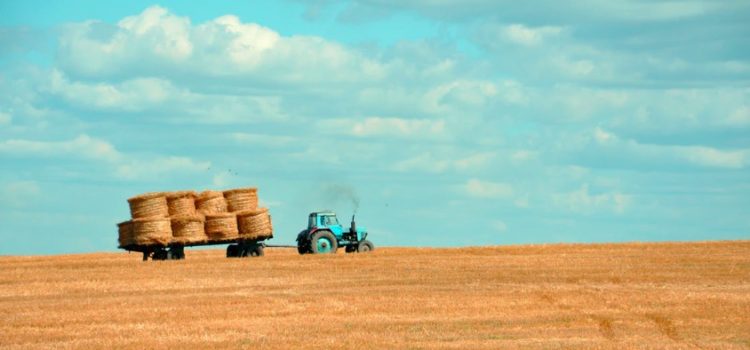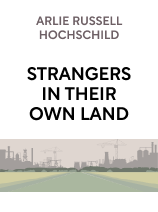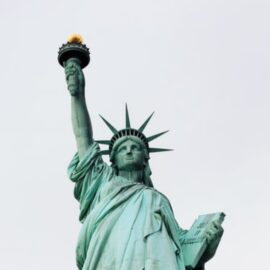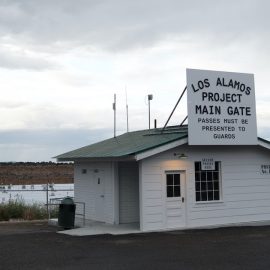

This article is an excerpt from the Shortform book guide to "Strangers In Their Own Land" by Arlie Russell Hochschild. Shortform has the world's best summaries and analyses of books you should be reading.
Like this article? Sign up for a free trial here .
What are the beliefs of blue collar conservatives? What drives them to vote for a party that’s pro-big-business and anti-worker?
Blue collar conservatives are working class republicans who vote for republican and conservative politicians. Despite the fact that these policies often cause harm to poor Republicans and blue collar workers, people continue to vote for the,.
Read more about blue collar conservatives and the value set that drives them to vote republican.
Blue Collar Conservatives: American Paradox
This is the central paradox of American politics. Why do economically disadvantaged whites—especially those living in states with poor health, education, and social mobility rankings—enthusiastically support a Republican Party that opposes economic policies (including paid family leave, environmental regulation, and universal healthcare) from which they would clearly benefit?
Particularly in the Deep South, arguably the ideological nerve center of American conservatism and far-right Tea Party activism, states and counties lag behind the rest of the country across nearly every measurement of human development. This seeming disregard of blue collar conservatives for their own economic self-interest on the part of conservative Republican voters seems maddening and incomprehensible to many on the left.
The Weight of Southern History
A large part of what drives blue collar conservatives in the south is southern history itself. With a history of poor republicans and rich republicans, this unique history helps us understand voters’ motivation.
In discussing the political right in a place like Lake Charles, it’s important to acknowledge the unique history of the American South and how an awareness of that regional history shapes today’s political identities.
Poor Whites of the Antebellum South
Before the American Civil War, the South was defined by the institution of Black chattel slavery, which infused the region’s political, economic, and social character.
The poor white yeomen farmers of the South (who themselves owned few, if any slaves) saw an extraordinarily vivid gap between rich and poor on display in their daily lives. After all, they only needed to contrast the rich and opulent lives of the planters with the miserable and exploited existence of the Black slaves.
The presence of the planters provided an example of what a poor white farmer could become if he applied himself; meanwhile, slavery reminded them of the region’s racial hierarchy—and, as white people (especially white men), of their relatively privileged place within that hierarchy. Their status as white men became an innate source of honor, contrasted as it was with the powerless condition of the Black slaves.
The inherent advantages of whiteness and the wealth opportunities afforded by slavery in such a society led even non-slaveholding whites to identify with and defend the institution of slavery and the wealthy planters who dominated the region.
The legacy of slavery and the racial politics of the region created a cultural framework in which white Southerners would be less receptive to populist, anti-rich political appeals and more receptive to pro-business messages, such as those promoted by blue collar conservatives.
This was despite the fact that poor whites were frequently economically exploited by the planters, who used their wealth to purchase the region’s best land, in the process pushing poorer whites onto more remote and less-productive land.
Against “Poor Me”
Blue collar conservatives and tea party members today, despite saying they have no racial animosity, talk about the economy in highly racialist terms. In attacking affirmative action, he says that no one should be hired for a job simply to fill racial quotas, and that there are plenty of jobs available for those willing to work.
Deep personal stories often inform people’s political views, and it’s no different for those on the right like Mayor Hardey. He claims that he was able to work his way up from relative poverty because his job at the Phillips 66 manufacturing plant gave him an opportunity to prove himself and take personal responsibility for his life—and that immigrants and racial minorities face no barriers that prevent them from doing the same, without government handouts.
Hardey’s belief in his own deep story and the role that he believes industry played in his own success are what shapes his anti-government politics. Decrying what he describes as a culture of “poor me,” he views all programs designed to ameliorate poverty and redress economic inequality as unjust handouts to the lazy and undeserving. This deep story is part of why poor Republicans and blue collar conservatives continue to vote against their own interests.

———End of Preview———
Like what you just read? Read the rest of the world's best book summary and analysis of Arlie Russell Hochschild's "Strangers In Their Own Land" at Shortform .
Here's what you'll find in our full Strangers In Their Own Land summary :
- What drives right-wing politics in America
- How a lack of empathy is increasing the partisan divide
- Why Republican politicians remain popular even if their policies don't help their voters






